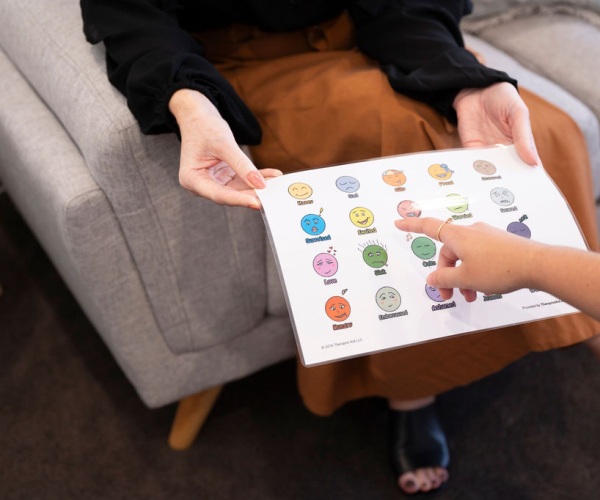Starting therapy can feel like a big step—for both teens and their parents. As a parent, you might wonder what happens in sessions, how involved you’ll be, and how therapy can support your teen’s wellbeing. At Prosper Health Collective, we know this stage of parenting comes with unique challenges, and understanding the therapy process can help you feel more confident as your teen begins their journey.
Therapy: Supporting Growth and Independence
Therapy for teens can support them with difficulties such as navigating the ups and downs of adolescence, developing coping skills, and building confidence. While your support remains important, therapy also gives your teen space to develop independence and take ownership of their growth. The best outcomes happen when therapists, teens, and parents work together as a team—with respect for your teen’s growing need for privacy and autonomy.
Your Role as a Parent
While therapy is your teen’s space, parents may play a role in the process. Your involvement may look different compared to when your child was younger, with the nature of your role depending on your teen’s preferences, stage of development and their presenting concerns. You might:
- Share relevant insights – If you are involved, let the therapist know about changes at school, home, or in friendships that may impact your teen.
- Encourage engagement – Support your teen to attend sessions and practice strategies between appointments without pressuring them.
- Respect privacy – Teens need to feel safe to open up in therapy. You may not hear every detail of what is discussed, but the therapist may share important themes, progress, and practical strategies if it is appropriate to do so. How much information is shared with you will depend on factors such as the age and development of your child, the reasons they are seeking support, and their personal preferences regarding privacy of their therapy sessions. Please be assured that if there is anything concerning that you should be aware of as a parent, your therapist will reach out to you.
- Be patient – Progress may come in small steps. Setbacks are normal and don’t mean therapy isn’t working.
- Look after yourself, too – Parenting a teenager in therapy can bring up lots of emotions. It’s okay to seek your own support if needed.
Your Teen’s Therapist’s Role
At Prosper Health Collective, our Psychologists aim to build a supportive, non-judgemental relationship with your teen. While you remain a key partner in the process, our role is to guide your teen to develop skills that support their emotional, social, and behavioural growth. This includes:
- Creating a safe space where your teen feels heard and respected.
- Using evidence-based strategies such as Cognitive Behavioural Therapy (CBT), Acceptance and Commitment Therapy (ACT), or skills-based approaches tailored to adolescents.
- Adapting to the individual – Every teenager is unique. We adjust our methods to their goals, personality, and learning style.
- Collaborating with parents when needed – We may check in with you about progress, share insights, and provide strategies you can support at home.
What Happens in a Session?
Psychology sessions usually last about 50 minutes.
- First session – You and your teen may meet with the therapist together. The therapist will explain confidentiality, ask questions to understand your teen’s needs, and set goals for their therapy journey.
- Ongoing sessions often include:
- A check-in on how things have been since the last appointment.
- Exploring challenges through conversation, activities, or structured strategies.
- Practicing skills such as managing emotions, problem-solving, or improving communication.
- Planning ways to use these skills at school, home, or with friends.
Confidentiality is an important part of therapy for teenagers. Therapists will keep private what your teen shares unless there are safety concerns or if your child is comfortable with information being shared. This helps your teen feel safe to be honest and open.
Taking the First Step
Seeking therapy for your teen is a positive step that shows your commitment to their wellbeing. While the process may feel unfamiliar at first, many families find that therapy strengthens not only their teen’s confidence and resilience but also their relationships.
At Prosper Health Collective, we’re here to guide and support you and your teen every step of the way.
